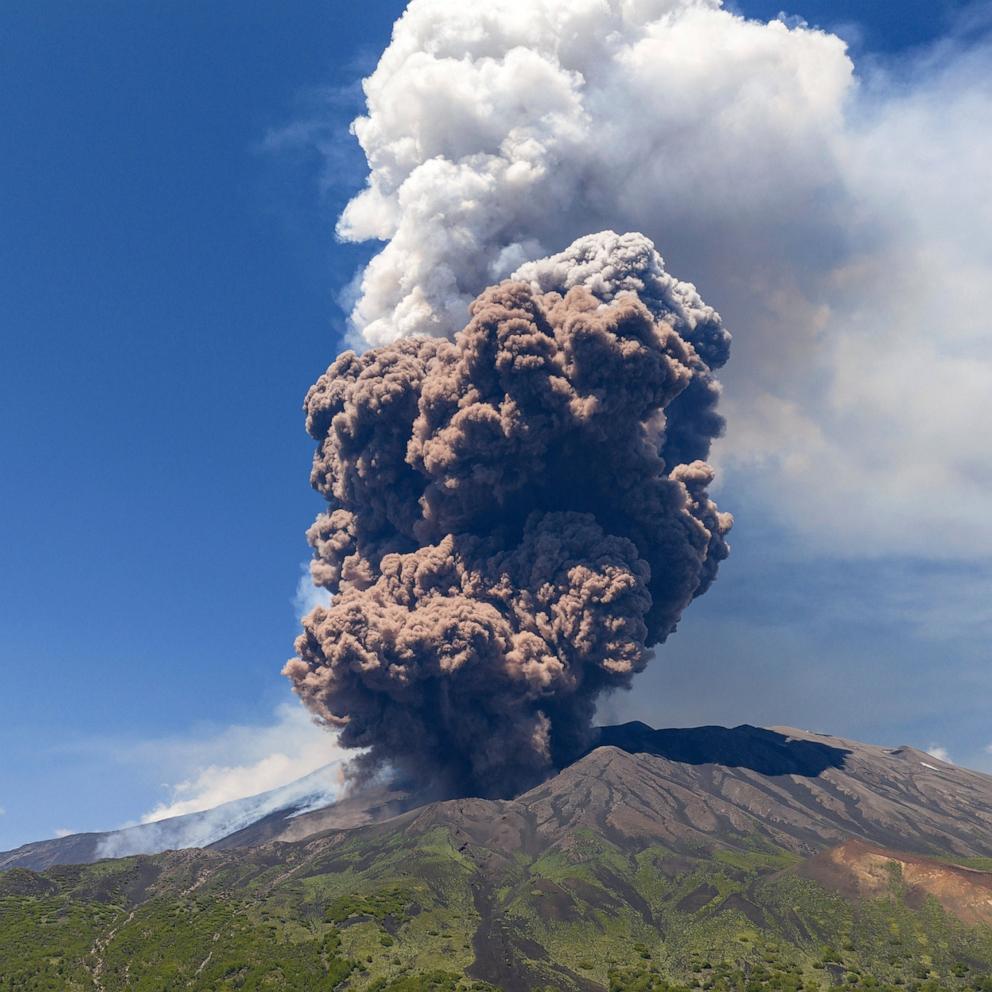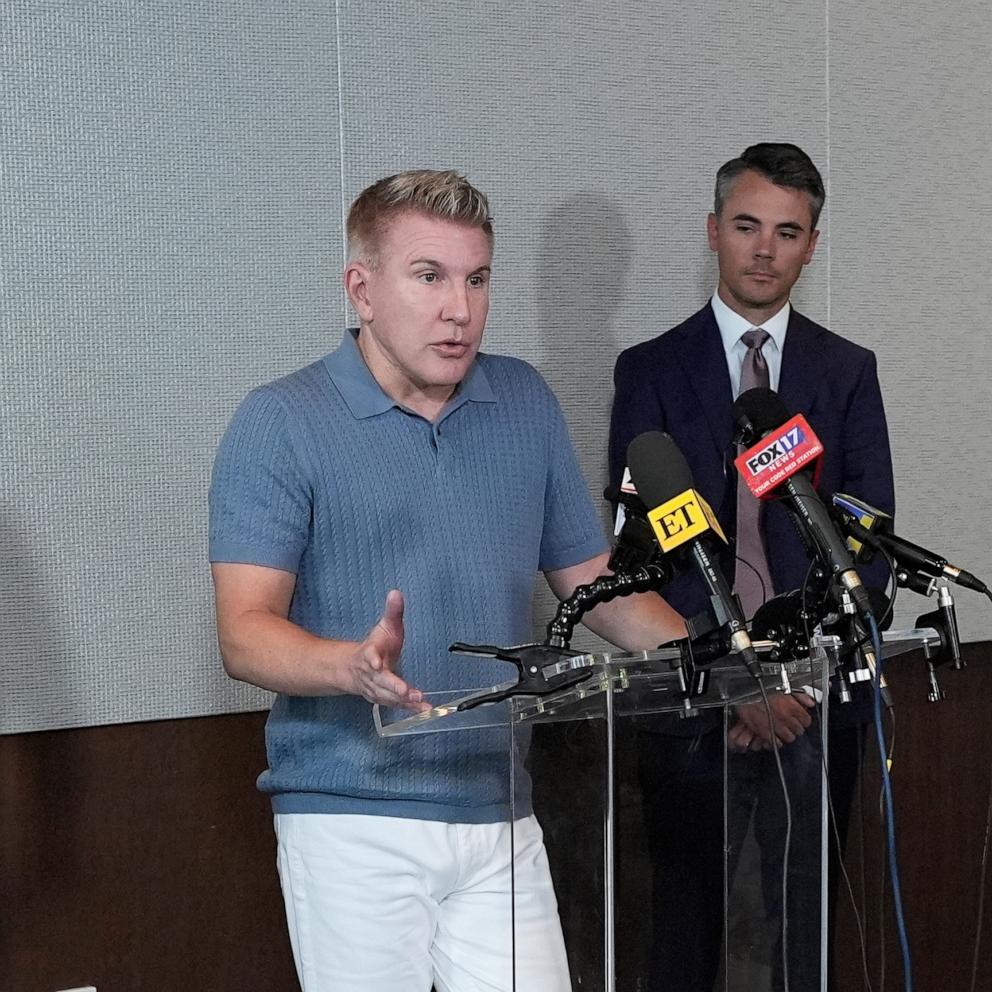Humanitarian groups, UN heavily criticize new aid distribution plan in Gaza
The Gaza Humanitarian Foundation began distributing aid this week despite criticism from the United Nations and some aid groups that have long been operating in Gaza. Photos and videos verified by ABC News show long lines of crowds waiting to get much-needed aid.
The controversy ramped up on Tuesday after a Palestinian was killed and 47 others were injured when shots were reportedly fired into the crowd of Palestinians who were trying to get food at an aid distribution site in Rafah, according to the U.N. It was unclear who fired the shots.
The Israel Defense Forces said it fired "warning shots" in the area of the distribution site as people flooded in, but not into the crowd. The cause of death for the person who was killed is unknown.
The Gaza Humanitarian Foundation declined ABC News' request for comment. The organization previously denied there were injuries or deaths at the Rafah site and said that all food was distributed at the site.
The GHF was first announced on May 19 -- three days after the Israeli government began its increased military operation in Gaza. Israeli Prime Minister Benjamin Netanyahu announced that Israel, "with our American friends," was creating a "system with distribution centers" that would be "secured by the IDF, preventing Hamas from reaching the area," to allow more aid to reach people in Gaza, referring to the Israel Defense Forces.
After the end of an 11-week Israeli blockade on aid entering Gaza, GHF -- a private contractor backed by the U.S. and Israel -- would take over distributing aid in Gaza, Netanyahu said.
Palestinians in Gaza are facing extreme hunger and famine due to the lack of resources, the U.N. and aid groups have warned. The blockade was instituted to pressure Hamas to release the remaining 20 hostages taken during Hamas' surprise terror attack on southern Israel on Oct. 7, 2023, that killed 1,200 people and led to the capture of hundreds, Israel said.
"The level of need in Gaza right now is overwhelming, and aid needs to be allowed to enter immediately and without impediment. Aid must reach those who need it most, irrespective of where they are in Gaza, safely and with dignity," an International Committee of the Red Cross (ICRC) spokesperson told ABC News in a statement.

While the GHF appears to have some level of U.S. backing, it is unclear what the U.S.'s exact role is in the organization.
The U.S. government has not publicly commented on the GHF or what role it plays in the organization. The GHF has no public website.
Leader of group resigns
Jake Wood -- an American military veteran who has worked in international humanitarian operations -- was the head of the GHF until he abruptly resigned from the organization on Sunday, May 25, hours before aid distribution was set to begin in Gaza.
Wood said in his resignation statement that he was "approached" about two months ago to lead GHF because of his experience in "humanitarian operations."
"At the time, GHF was a loose constellation of various ideas and concepts among a wide range of stakeholders, and I sought to establish it as a truly independent humanitarian entity. I am proud of the work I oversaw, including developing a pragmatic plan that could feed hungry people, address security concerns about diversion, and complement the work of longstanding NGOs (non-governmental organizations) in Gaza," Wood said.
"However, it is clear that it is not possible to implement this plan while also strictly adhering to the humanitarian principles of humanity, neutrality, impartiality, and independence, which I will not abandon," Wood said.
John Acree was named as the interim executive director of the foundation the next day, on May 26, according to a release from GHF.
When ABC News requested an interview with someone from GHF, the group said no one would be available.
GHF said in a press release Friday it has distributed over 2.1 million meals in Gaza, and operations will continue scaling with plans to build additional sites, including in the northern region.
"Despite the emergency intensity and kinetic environment surrounding our operations, the fact is our assistance efforts are helping Gazans," a statement from Acree said. "But this is just the beginning. Our commitment to safely and effectively supplying food directly to a large, hungry population is unwavering, and we look forward to continuing to scale and strengthen on our initial undertakings to help meet the basic food security needs of the people in Gaza."
Humanitarian crisis worsens
Critics have warned GHF's plan will not meet the needs of Palestinians.
"I walked for kilometers, I got tired and only came home with a can of peas," Mazen Yunis, a Palestinian from Khan Younis, told an ABC News producer in Gaza outside the distribution site in Rafah. "The quantity was limited, and the people swarmed it; barely anyone got some, only a few people got boxes, around 2,000 people went there, maybe a 100 got some."
"I have a 10-member family and only came back with a can of peas," Yunis said.
Netanyahu said earlier this month that the new aid scheme under GHF would distribute food to Palestinian families to last them a week. He also said that it will be "very hard for Hamas to steal it, especially because we guard these positions."
Amnesty International said only experienced groups should coordinate the relief needed by the over 2 million Palestinians in Gaza, "who are facing catastrophic levels of food insecurity due to the weaponisation of starvation," in a statement Thursday.
"The United Nations and global aid organizations have universally condemned the GHF for undermining established aid distribution networks and violating core international humanitarian principles," Amnesty International said. "Alarmingly, the scheme puts military personnel in charge of aid delivery, an approach fundamentally at odds with international humanitarian standards."

U.N. officials also said humanitarian law must be respected.
"We continue to stress that a meaningful scale-up of humanitarian operations is essential to stave off famine and meet the needs of all civilians wherever they are," U.N. spokesman Stephane Dujarric said on Tuesday.
"We and our humanitarian partners stand ready to deliver at scale, which is something we've repeated over and over and again," Dujarric said.
Aid groups also criticized the limited number of distribution points.
"Even if implemented, the plan's proposed aid volumes fall short of the immense scale of needs in Gaza. The level of need right now is overwhelming, and aid needs to be allowed to enter immediately and without impediment," the ICRC said in a separate statement on Tuesday.

The ICRC said it is not involved in the GHF aid distribution, saying it "cannot work under any mechanism that doesn't allow us to uphold those principles and our modalities of work."
"Humanitarian aid should not be politicized nor militarized. This erodes the neutrality required to ensure assistance is delivered based solely on need, not political or military agendas," the ICRC said in a statement.

Gabor Rona, a professor at Cardozo School of Law who specializes in international humanitarian law, agreed with the criticism of GHF.
"The GHF operation is a violation of humanitarian principles of independence, neutrality, and impartiality, but most importantly, the principle of humanity, given the program's inadequacy and consistency with Israeli and U.S. interests in displacement of the civilian population under occupation (a war crime and crime against humanity)," Rona said in an email to ABC News.
The World Food Programme, which is part of the U.N., said it "cannot safely operate under a distribution system that limits the number of bakeries and sites where Gaza's population can access food."
"WFP and its partners must also be allowed to distribute food parcels directly to families -- the most effective way to prevent widespread starvation," the organization said in a statement.
GHF said in a press release on Friday that it is "actively testing and adapting its distribution model to safely deliver the maximum amount of aid to the greatest number of people."
The organization added, "We will continue to adapt based on conditions on the ground, including access, crowd pressure, and safety considerations."




